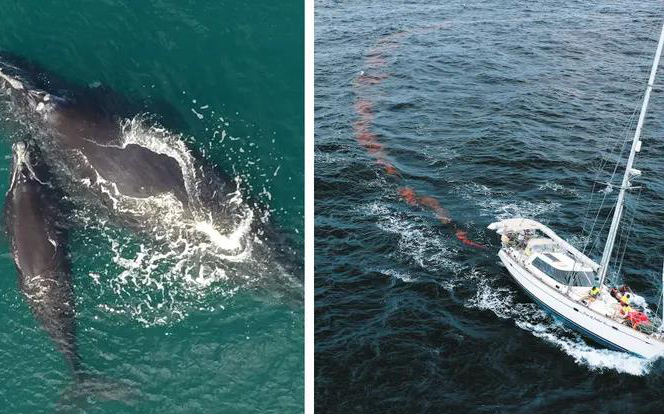In a bid to win a $100 million prize from the world’s richest billionaire Elon Musk for carbon capture technology, scientists and engineers pumped 300 liters of a compound that simulates whale droppings into the sea off the coast of Sydney.
The research team, called WhaleX, performed the first oceanic experiment on December 19. After obtaining permission from the federal government, the team carried out the experiment off the coast of Port Botany in New South Wales, 8km.
The 12-person team is racing against time to conduct the next experiment, which is expected to be conducted before the end of January 2022. In the next experiment they will pump 2,000 liters of a compound that mimics whale droppings, a mixture of nitrogen, phosphorus and trace elements.

In February, SpaceX founder – billionaire Elon Musk – announced a grant of $ 100 million through the XPrize Foundation for a competition to find a way to safely capture CO2 with a scale of 1 billion tons or more per year.
At the time, Musk said the contest was not “theoretical” but was looking for groups that could “build systems that actually make a measurable impact and expand capture to billions of tons of gas“.
WhaleX signed up for the four-year contest in hopes of making it into a pool of 15 “important” prizes, each worth $1 million.
Whale droppings are known as “ocean fertilizer” and are food for plankton. As plankton grow and multiply, they absorb carbon. When they die, they sink to the ocean floor and “bury” with large amounts of CO2.
Dr Edwina Tanner, the climate scientist leading the WhaleX project, and colleagues said they targeted a 225 square kilometer area off the coast of Port Botany. Previously, they took water samples and discovered nutrient deficiencies in this marine area.
Dr Tanmer said the amount of substance pumped into the sea was equivalent to twice the discharge of a humpback whale. The team also says the first experiment will capture about 2 tons of carbon dioxide.
A lot of research will be needed to make sure this approach doesn’t harm the marine environment, Tanmer said. By simulating what whales have done for millions of years, the team is confident they can safely execute their idea.
Ocean Nourishment Corporation (ONC) CEO and one of the project’s partners, John Ridley, said the work will continue even if it fails to win the XPrize competition.
He said investors are being attracted by the potential size and ability to store carbon safely and longer than some land-based methods. ONC has actively discussed with more than 10 investor groups from Europe and Australia.
He said the climate crisis is pushing the planet “closely” to some “dangerous limits”. Reducing emissions and eliminating carbon is something that needs to be done quickly and in tandem.
Reference: The Guardian
.